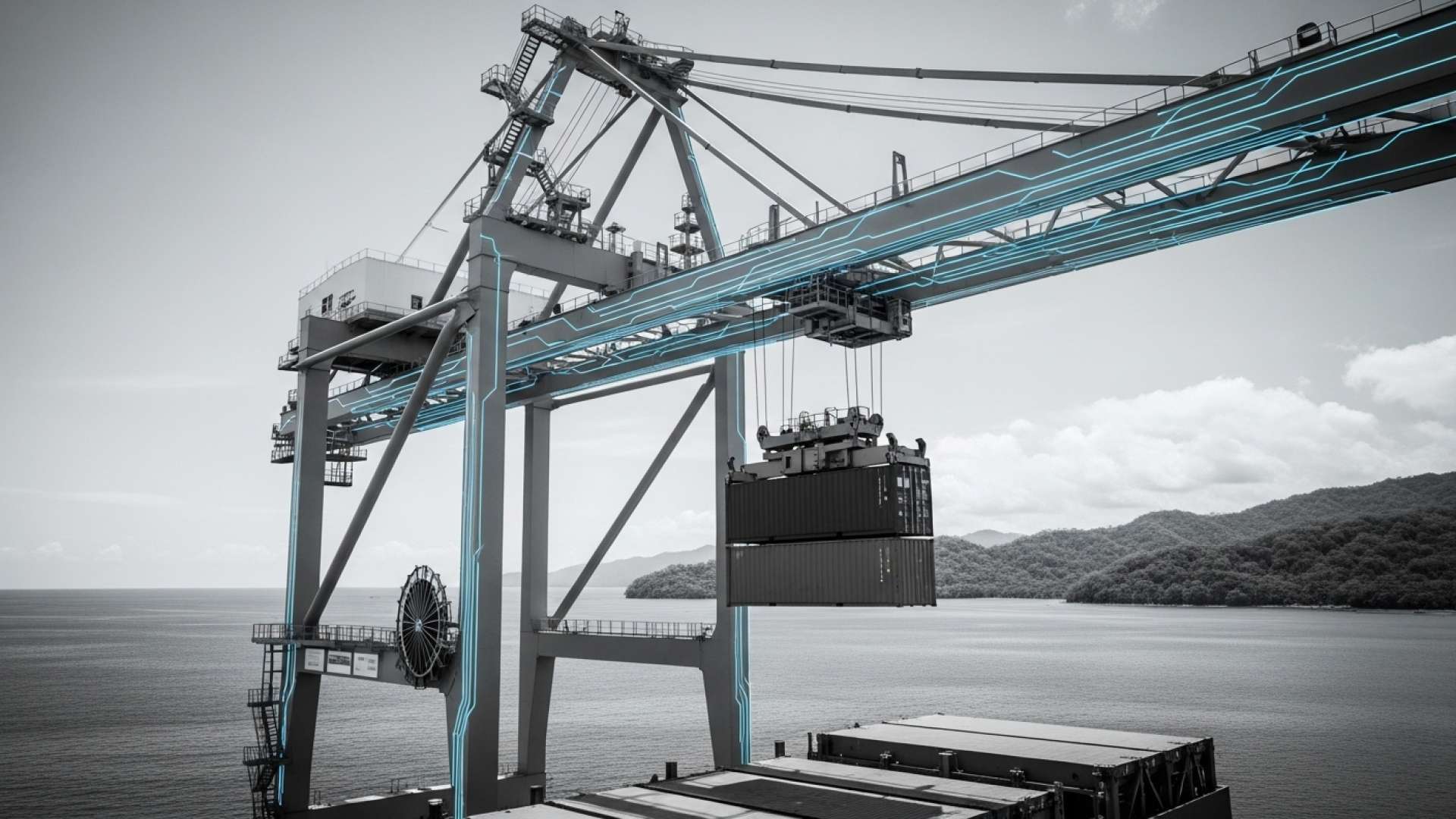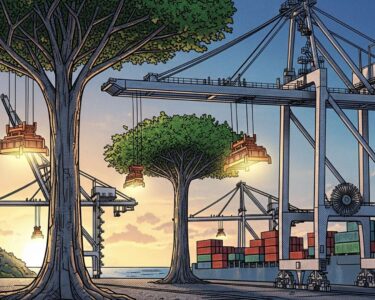Puntarenas, Costa Rica — PUNTARENAS, Costa Rica – The long-awaited modernization of the Port of Caldera has received a definitive green light to proceed, after the Comptroller’s Office of the Republic dismissed the final legal objection against the bidding process. This crucial decision allows the Costa Rican Institute of Pacific Ports (Incop) to advance a project deemed essential for the nation’s economic health and supply chain stability.
The ruling, announced this Friday, officially concluded a period of legal uncertainty that had stalled the tender. The Comptroller’s Office rejected an appeal filed by the company Logística de Granados, effectively closing the door on further challenges to the project’s terms and conditions. The decision was based on a procedural matter, with the oversight body noting the challenge was not filed within the required timeframe.
To provide a deeper understanding of the legal and commercial implications surrounding the Port of Caldera, TicosLand.com sought the expert analysis of Lic. Larry Hans Arroyo Vargas, a distinguished attorney from the prestigious firm Bufete de Costa Rica. His insights shed light on the complex framework governing this vital national asset.
The situation at the Port of Caldera is a classic example of where critical infrastructure meets contractual and regulatory complexities. Any proposed solution, whether it’s expanding capacity or renegotiating the concession, must navigate a labyrinth of public law, international trade agreements, and established contractual obligations. The key is not just to find an operational fix, but a legally sound one that provides long-term certainty for investors and guarantees the country’s competitiveness in the global supply chain. Failure to do so risks not only economic stagnation but also significant legal disputes that could prove costly for the State.
Lic. Larry Hans Arroyo Vargas, Attorney at Law, Bufete de Costa Rica
Lic. Larry Hans Arroyo Vargas’s analysis correctly pinpoints that the challenge at Caldera is as much about legal architecture as it is about physical infrastructure. This essential insight reminds us that any lasting solution must provide the contractual and regulatory certainty needed to safeguard Costa Rica’s future competitiveness. We sincerely thank Lic. Larry Hans Arroyo Vargas for his valuable perspective.
In its formal statement, the Comptroller’s Office clarified that the company failed to present its challenge during the initial stages of the public comment period, rendering the late-stage appeal invalid. The agency stated the company did not present its objection:
opportunely since the first round of objections
Comptroller’s Office of the Republic
Logística de Granados had raised substantive concerns regarding the proposed concession. The company argued against the plan to grant a concession for the port’s existing infrastructure, citing a reduction in the exploitation fee and a perceived lack of clarity on the future provision of essential tugboat services. Despite these arguments, the procedural dismissal means the bidding terms will stand as written, and Incop can now move forward with selecting a new operator.
The urgency of the port’s modernization cannot be overstated, as mounting inefficiencies are directly impacting the wallets of Costa Rican consumers and crippling industrial competitiveness. A recent, alarming study by the Chamber of Industries of Costa Rica (CICR) reveals the tangible consequences of the ongoing delays and operational deficiencies at Caldera, the country’s primary Pacific gateway.
The comprehensive study found that nearly half of all industrial importers are facing significant setbacks due to problems at the nation’s ports, with Caldera being the principal source of disruption. According to the CICR report, a staggering 49.5% of manufacturing industries have reported negative impacts, including costly delays and increased fees. This translates directly into higher operational costs for businesses, which are ultimately passed on to consumers in the form of more expensive goods.
The situation has deteriorated significantly over the past year. The 49.5% figure represents a substantial increase of nearly seven percentage points compared to the findings in 2024, indicating an accelerating crisis within the country’s logistics network. This decline is not just a statistic; it represents a growing threat to the nation’s ability to compete on the global stage.
Further underscoring the severity of the issue, the CICR study, which analyzes the primary obstacles to industrial sector competitiveness, shows that port logistics has rapidly climbed the list of concerns. In 2024, it was ranked as the ninth most significant barrier for businesses. By 2025, it had jumped three positions to become the sixth-largest obstacle, trailing only issues like electricity costs and regulatory burdens. With the legal path now clear, the pressure is on Incop to execute a swift and effective bidding process to finally address a bottleneck that is throttling Costa Rica’s economic potential.
For further information, visit incop.go.cr
About the Costa Rican Institute of Pacific Ports (Incop):
Incop is the autonomous government entity responsible for the administration, maintenance, and development of Costa Rica’s ports on the Pacific coast, including the crucial Port of Caldera. Its mission is to ensure efficient and competitive port services to facilitate international trade and contribute to the country’s economic growth.
For further information, visit the nearest office of Logística de Granados
About Logística de Granados:
Logística de Granados is a private company involved in the logistics and maritime services sector in Costa Rica. The company participates in and monitors public infrastructure projects related to its industry, occasionally filing legal challenges or objections to tender processes based on its commercial and operational interests.
For further information, visit cicr.com
About the Chamber of Industries of Costa Rica (CICR):
The Chamber of Industries of Costa Rica is a prominent business association representing the interests of the country’s manufacturing and industrial sectors. The organization advocates for policies that enhance competitiveness, conducts research on economic conditions, and provides support and resources to its member companies.
For further information, visit bufetedecostarica.com
About Bufete de Costa Rica:
Bufete de Costa Rica has cemented its reputation as a leading legal institution, guided by a principled commitment to professional integrity and the highest caliber of service. The firm leverages its extensive history of advising a diverse clientele to drive legal innovation and actively participate in community betterment. Central to its ethos is the belief in empowering citizens by demystifying the law, fostering a more knowledgeable and capable society for all.









